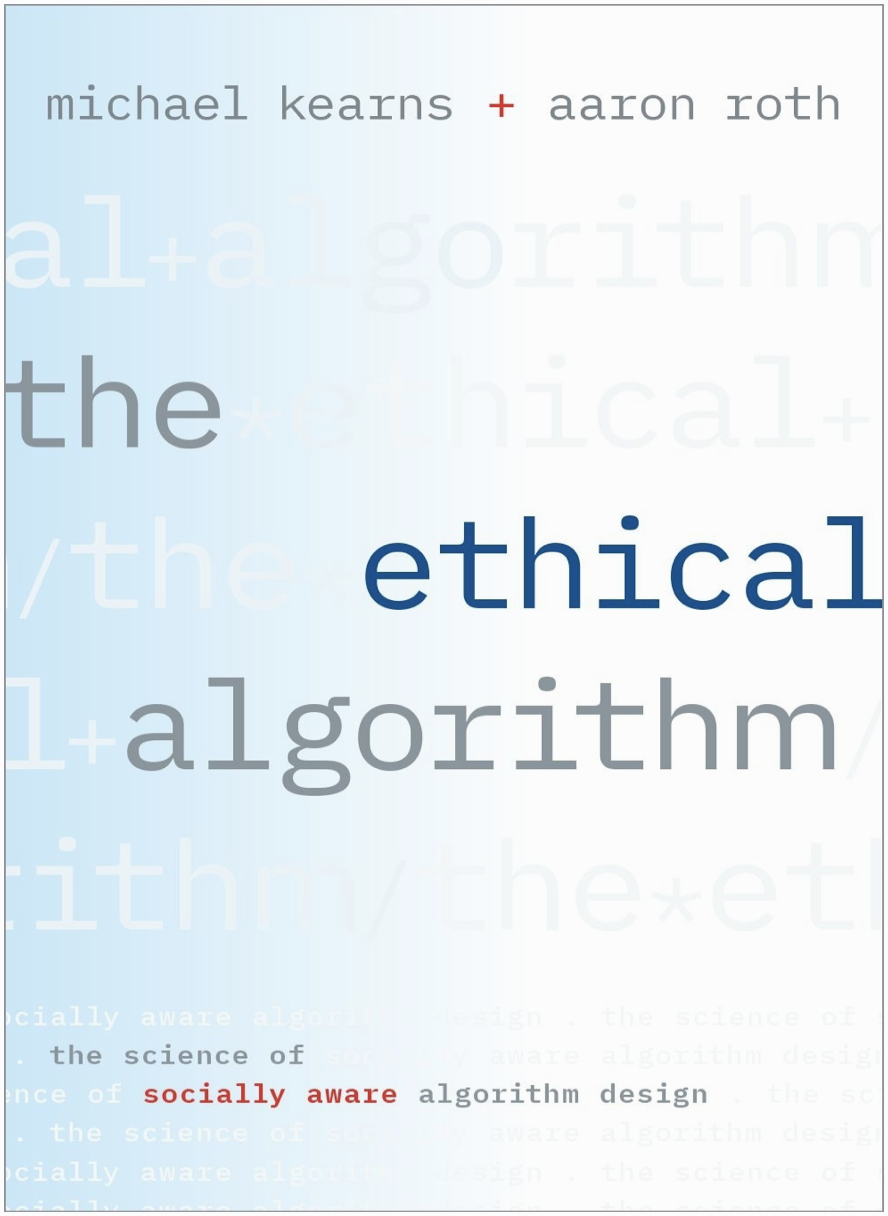Authors: Michael Kearns, Aaron Roth
Books on ethics and algorithms are mushrooming. In this rapidly growing domain, The Ethical Algorithm is a must-read for both technical and non-technical readers.
From various disciplines this book connects cutting-edge thinking how ethics and algorithms should co-exist. Theoretical concepts as k-anonymity, p-hacking and differential privacy are explained clearly through comprehensible and illustrated examples. At the start of the book, a sorting algorithm is discussed step-by-step to give non-technical readers a taste what algorithms are about.
The authors (two heavyweight researchers in theoretical computer science) present a broad view of ethical algorithms. Sociological and technical approaches are intertwined to assess digital fairness. For instance, as a central these it is stated that users often play with algorithms for their own benefit. The authors explain why remedies can be found both in the technological and non-technological domain. In the same holistic manner, delicate topics that emerge in ethics – such as ‘Should certain protected variables be included in or excluded from algorithmic tools?’ – are treated with care. In such, The Ethical Algorithm takes a distinguished stance on sociological, technical and political ramifications that emerge while discussing analogue and digital notions of fairness.
Although the linkage between the two main parts of the book (algorithmic privacy and algorithmic fairness) remains unexplained, the concepts discussed in both parts are compelling. The concept of Pareto frontiers fits the book nicely. Pareto frontiers constitute sets of “reasonable” choices for the trade-off between accuracy and fairness of algorithmic models. Pareto frontiers make those tradeoffs as quantitative as possible, but no more so. The numeric curves are “necessarily silent about which point we should choose along the frontier, because that is a matter of judgment about the relative importance of accuracy and fairness”. Kearns and Roth argue that “we must accept this bargain for strong fairness guarantees”.

Pareto frontier – Any model not on the boundary is a “bad” model. Source: The Ethical Algorithm
Why not to avoid/use algorithms altogether? The Ethical Algorithm presents solid answers to fundamental questions:
“Trade-offs between how fair decision-making models are and how accurate they are have always been implicitly present in human decision-making; the data centric, algorithmic era has just brought them to the fore and encouraged us to reason about them more precisely.”
Guided by books of this quality, the daunting task to realize a fair digital future becomes a little bit less complicated.

